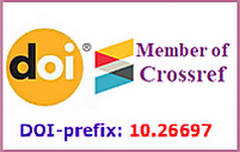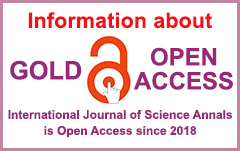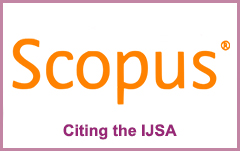Ghobrini M. 1, Ghobrini R. E. A. 1, Benaicha F. 1
| 1 Abdelhamid Ibn Badis University, Algeria |
Abstract
Background and Aim of Study: The realm of education is in a constant state of evolution, necessitating that teachers at K-12 and tertiary levels continually update their practices through continuous professional development (CPD). The COVID-19 pandemic has significantly accelerated the adoption of online CPD, encompassing self-driven initiatives, government-led programs, and third-party offerings, notably those by the British Council in the MENA region, which is the emphasis of this study. This transition to online platforms initially involved leveraging Zoom, and subsequently, WhatsApp.
The aim of the study: to map the process of CPD-infused online training by analyzing meeting schedules, topics discussed, group dynamics, and interaction patterns. Additionally, it seeks to develop a CPD-based system that can be replicated or scaled for broader implementation.
Material and Methods: This descriptive multi-case study is conducted on two WhatsApp groups dedicated to enhancing the skills and competencies of 990 and 780 MENA teachers, respectively. For data collection, the study employed two primary tools: participant observation, and analysis of archived data from CPD-based multimedia-focused discussions in both e-groups over a fixed period of 40 days.
Results: The research provides a comprehensive overview of the CPD process and a cost-effective scalable CPD-centric system based on six key elements: e-platforms, e-meetings, archiving, certification, website and organization that orchestrates and streamlines the entire process. This CPD-driven system offers guidelines for institutions and policymakers looking to replicate this system in their educational contexts, with the goal of upgrading teachers’ pedagogical expertise.
Conclusions: This study contributes to understanding the effectiveness and scalability of online CPD initiatives using platforms like WhatsApp, particularly in regions like MENA, and offers insights for stakeholders aiming to implement similar strategies for enhancing teacher professional development.
Keywords
education, system, social media, CPD, MENA, WhatsApp
References
Acuyo, A. (2021). Reviewing the literature on professional development for higher education tutors in the work-from-home era: Is it time to reconsider the integration of social media? Education and Information Technologies, 27(1), 89–113. https://doi.org/10.1007/s10639-021-10603-2
Adi Badiozaman, I. F., Segar, A. R., & Iah, D. (2022). Examining faculty’s online teaching competence during crisis: One semester on. Journal of Applied Research in Higher Education, 14(2), 541–555. https://doi.org/10.1108/JARHE-11-2020-0381
Al-Jarf, R. (2021). ESL Teachers’ professional development on Facebook during the COVID-19 pandemic. Online Submission, 2(6), 75–81. https://doi.org/10.24018/ejedu.2021.2.6.220
Anders, A. D. (2018). Networked learning with professionals boosts students’ self-efficacy for social networking and professional development. Computers & Education, 127, 13–29. https://doi.org/10.1016/j.compedu.2018.08.009
Anene, I. A., & Idiedo, V. O. (2023). Librarians participation in professional development workshops using Zoom in Nigeria. Information Development, 39(1), 36–45. https://doi.org/10.1177/02666669211026714
Bett, H., & Makewa, L. (2020). Can Facebook groups enhance continuing professional development of teachers? Lessons from Kenya. Asia-Pacific Journal of Teacher Education, 48(2), 132–146. https://doi.org/10.1080/1359866X.2018.1542662
Cansoy, R. (2017). Teachers’ professional development: The case of WhatsApp. Journal of Education and Learning, 6, 285-293. https://doi.org/10.5539/JEL.V6N4P285
Çelen, F. K., & Seferoglu, S. S. (2020). Features of effective professional development practices for teachers as ICT users. In Enriching Teaching and Learning Environments with Contemporary Technologies (pp. 18–38). IGI Global. https://doi.org/10.4018/978-1-7998-3383-3.ch002
Clarke, V., & Braun, V. (2017). Thematic analysis. The Journal of Positive Psychology, 12(3), 297–298. https://doi.org/10.1080/17439760.2016.1262613
Colwell, J., & Hutchison, A. C. (2018). Considering a Twitter-based professional learning network in literacy education. Literacy Research and Instruction, 57(1), 5–25. https://doi.org/10.1080/19388071.2017.1370749
Cook, R. J., Jones-Bromenshenkel, M., Huisinga, S., & Mullins, F. (2017). Online professional learning networks: A viable solution to the professional development dilemma. Journal of Special Education Technology, 32(2), 109–118. https://doi.org/10.1177/0162643417696930
Cordingley, P., Higgins, S., Greany, T., Buckler, N., Coles-Jordan, D., Crisp, B., Saunders, L., & Coe, R. (2015). Developing great teaching: Lessons from the international reviews into effective professional development. Teacher Development Trust. https://tdtrust.org/about/dgt/
Darling-Hammond, L. (2017). Teacher education around the world: What can we learn from international practice? European Journal of Teacher Education, 40(3), 291–309. https://doi.org/10.1080/02619768.2017.1315399
De Laat, M. (2012). Enabling professional development networks: How connected are you? Open Universteit. https://www.saide.org.za/resources/Library/De%20Laat%20M%20-%20Enabling%20Professional%20Development%20Networks.pdf
Donelan, H. (2016). Social media for professional development and networking opportunities in academia. Journal of Further and Higher Education, 40(5), 706–729. https://doi.org/10.1080/0309877X.2015.1014321
Focho, G. N. (2023). Learning to teach: The continuing professional development realities of english language teachers in cameroon. In Continuing Professional Development of TESOL Practitioners: A Global Landscape (pp. 103–130). Springer International Publishing. https://doi.org/10.4236/oalib.1106994
González, C., Ponce, D., & Fernández, V. (2023). Teachers’ experiences of teaching online during COVID-19: implications for postpandemic professional development. Educational Technology Research and Development, 71(1), 55–78. https://doi.org/10.1007/s11423-023-10200-9
Greene, D., & David, J. L. (1984). A research design for generalizing from multiple case studies. Evaluation and program planning, 7(1), 73–85. https://doi.org/10.1016/0149-7189(84)90027-2
Hossein, C., Hossein, T., Maryam, H. L., & Shahnaz, A. (2024). A systematic review of online teaching competencies in higher education context: A multilevel model for professional development. Research and Practice in Technology Enhanced Learning, 19, Article 014. https://doi.org/10.58459/rptel.2024.19014
Howison, J., Wiggins, A., & Crowston, K. (2011). Validity issues in the use of social network analysis with digital trace data. Journal of the Association for Information Systems, 12(12), 767–797. https://doi.org/10.17705/1jais.00282
Hung, M. L., & Chou, C. (2015). Students’ perceptions of instructors’ roles in blended and online learning environments: A comparative study. Computers & Education, 81, 315–325. https://doi.org/10.1016/j.compedu.2014.10.022
Jung, I., Omori, S., Dawson, W. P., Yamaguchi, T., & Lee, S. J. (2021). Faculty as reflective practitioners in emergency online teaching: An autoethnography. International Journal of Educational Technology in Higher Education, 18, Article 30. https://doi.org/10.1186/s41239-021-00261-2
Kihwele, J. E., & Mgata, F. (2022). Mathematics teachers’ use of WhatsApp groups as a platform for continuous professional development in Tanzania. African Journal of Teacher Education, 11(1), 121–142. https://doi.org/10.21083/ajote.v11i1.6541
Lantz-Andersson, A., Lundin, M., & Selwyn, N. (2018). Twenty years of online teacher communities: s systematic review of formally-organized and informally-developed professional learning groups. Teaching and Teacher Education, 75, 302–315. https://doi.org/10.1016/j.tate.2018.07.0
Leary, H., Dopp, C., Turley, C., Cheney, M., Simmons, Z., Graham, C. R., & Hatch, R. (2020). Professional development for online teaching: A literature review. Online Learning, 24(4), 254–275. https://doi.org/10.24059/olj.v24i4.2198
Lee, J., Topping, K., & Lakin, E. (2023). Technology-facilitated continuous professional development during a pandemic: A Hong Kong primary school case study. RELC Journal, 54(2), 376–393. https://doi.org/10.1177/00336882231175239
Li, S., Zhang, J., Yu, C., & Chen, L. (2017). Rethinking distance tutoring in e-learning environments: A study of the priority of roles and competencies of Open University Tutors in China. International Review of Research in Open and Distributed Learning, 18(2), 189–212. https://doi.org/10.19173/irrodl.v18i2.2752
Lucovich, D. (2021). A new ZPD: Zoom for professional development. In I. Jalaluddin (Ed.), Proceedings of the 29th MELTA International Conference (pp. 12–14). MELTA. https://www.researchgate.net/profile/Takad-Chowdhury/publication/361462970_2021_melta_online_proceedings/links/62b2ecc6dc817901fc736490/2021-melta-online-proceedings.pdf
Maloney, S., Tunnecliff, J., Morgan, P., Gaida, J., Keating, J., Clearihan, L., Sadasivan, S., Ganesh, S., Mohanty, P., Weiner, J., Rivers, G., & Ilic, D. (2017). Continuing professional development via social media or conference attendance: A cost analysis. JMIR Medical Education, 3(1), Article e5. https://doi.org/10.2196/mededu.6357
Martin, F., Budhrani, K., Kumar, S., & Ritzhaupt, A. (2019). Award-winning faculty online teaching practices: Roles and competencies. Online Learning, 23(1), 184–205. https://doi.org/10.24059/olj.v23i1.1329
Metz, N., & Bezuidenhout, M. (2018). An importance-competence analysis of the roles and competencies of e-tutors at an open distance learning institution. Australasian Journal of Educational Technology, 34(5). https://doi.org/10.14742/ajet.3364
Mohr, S., & Shelton, K. (2017). Best practices framework for online faculty professional development: A Delphi study. Online Learning, 21(4), 123–140. https://doi.org/10.24059/olj.v21i4.1273
Motteram, G., Dawson, S., & Al-Masri, N. (2020). WhatsApp supported language teacher development: A case study in the Zataari refugee camp. Education and Information Technologies, 25, 5731–5751. https://doi.org/10.1007/s10639-020-10233-0
Mutiary, L., & Ratnam-Lim, C. (2023). Choosing Relevant Internet Assisted Course Types for Professional Development. International Journal of Technology in Education, 6(4), 635–655. https://doi.org/10.46328/ijte.557
Nicolaidou, M., & Petridou, A. (2011). Evaluation of CPD programmes: Challenges and implications for leader and leadership development. School Effectiveness and School Improvement, 22, 51–85. https://doi.org/10.1080/09243453.2010.547344
Niess, M. L. (2011). Investigating TPACK: Knowledge growth in teaching with technology. Journal of educational computing research, 44(3), 299–317. https://doi.org/10.2190/EC.44.3.c
Noor, M. S. A. M., Ahmad, S., & Zainudin, Z. (2021). Initiating a professional development on action research during the COVID-19 pandemic. EdArXiv. https://doi.org/10.35542/osf.io/3nd9k
Ohme, J., Araujo, T., Boeschoten, L., Freelon, D., Ram, N., Reeves, B. B., & Robinson, T. N. (2024). Digital trace data collection for social media effects research: APIs, data donation, and (screen) tracking. Communication Methods and Measures, 18(2), 124–141. https://doi.org/10.1080/19312458.2023.2181319
Paliwal, M., & Singh, A. (2021). Teacher readiness for online teaching-learning during COVID-19 outbreak: A study of Indian institutions of higher education. Interactive Technology and Smart Education, 18(3), 403–421. https://doi.org/10.1108/ITSE-07-2020-0118
Phelps, A., & Vlachopoulos, D. (2019). Successful transition to synchronous learning environments in distance education: A research on entry-level synchronous facilitator competencies. Education and Information Technologies, 25, 1511–1527. https://doi.org/10.1007/s10639-019-09989-x
Player-Koro, C., Bergviken Rensfeldt, A., & Selwyn, N. (2018). Selling tech to teachers: Education trade shows as policy events. Journal of Education Policy, 33(5), 682–703. https://doi.org/10.1080/02680939.2017.1380232
Pypenko, I. S. (2019). Digital product: The essence of the concept and scopes. International Journal of Education and Science, 2(4), 56. https://doi.org/10.26697/ijes.2019.4.41
Rahman, N. L. A., Mokhtar, M., & Ali, D. F. (2020). Enhancing self-initiated professional development (SI-PD) through technology during COVID-19 pandemic. Innovative Teaching and Learning Journal (ITLJ), 4(2), 30–36. https://itlj.utm.my/index.php/itlj/article/view/53
Reader, E. E., Campus, M. R., & Tahachal, K. N. (2020). Online education as a new paradigm for teaching and learning higher education in Nepal: Issues and challenges. Global Scientific Journal, 8(8), 208–220. https://www.globalscientificjournal.com/researchpaper/Online_Education_as_a_New_Paradigm_for_Teaching_and_Learning_Higher_Education_in_Nepal_Issues_and_Challenges.pdf
Schalk, A. E., McAvinia, C., & Rooney, P. (2022). Exploring the concept of the digital educator during COVID-19. Australasian Journal of Educational Technology, 38(2), 129–141. https://doi.org/10.14742/ajet.7316
Simamora, R. M., De Fretes, D., Purba, E. D., & Pasaribu, D. (2020). Practices, challenges, and prospects of online learning during Covid-19 pandemic in higher education: Lecturer perspectives. Studies in Learning and Teaching, 1(3), 185–208. https://doi.org/10.46627/silet.v1i3.45
Thomlison, B. (2001). Descriptive studies. In B. A. Thyer (Ed.), The Handbook of Social Work Research Methods (pp. 131–141). SAGE Publications, Inc. https://doi.org/10.4135/9781412986182
Thumiki, V. R. R., & Magd, H. (2022). Online teaching competencies among faculty members at Modern College of Business and Science (MCBS) Sultanate of Oman. International Journal of Information and Education Technology, 12(9), 121–125. https://doi.org/10.18178/ijiet.2022.12.9.1692
Trust, T., Krutka, D. G., & Carpenter, J. P. (2016). “Together we are better”: Professional learning networks for teachers. Computers & Education, 102, 15–34. https://doi.org/10.1016/j.compedu.2016.06.007
Wang, Y., Wang, Y., Stein, D., Liu, Q., & Chen, W. (2021). The structure of Chinese beginning online instructors’ competencies: Evidence from Bayesian factor analysis. Journal of Computers in Education, 8, 411–440. https://doi.org/10.1007/s40692-021-00186-9
Wong, J. T., Bui, N. N., Fields, D. T., & Hughes, B. S. (2023). A learning experience design approach to online professional development for teaching science through the arts: Evaluation of teacher content knowledge, self-efficacy and STEAM perceptions. Journal of Science Teacher Education, 34(6), 593–623. https://doi.org/10.1080/1046560X.2022.2112552
Zhu, S., Yang, H. H., Xu, S., & MacLeod, J. (2018). Understanding social media competence in higher education: Development and validation of an instrument. Journal of Educational Computing Research, 57(8), 1935–1955. https://doi.org/10.1177/0735633118820631
Benaicha Faiza – https://orcid.org/0000-0003-0692-029X; Post-Graduate student, GSLSD Research Lab, Abdelhamid Ibn Badis University, Mostaganem, Algeria.
| |
APA
Ghobrini, M., Ghobrini, R. E. A., & Benaicha, F. (2024). A digital leap in the evolution of continuous professional development for teachers. International Journal of Science Annals, 7(1), 17–25. https://doi.org/10.26697/ijsa.2024.1.3
Harvard
Ghobrini, M., Ghobrini, R. E. A., & Benaicha, F. 2024. "A digital leap in the evolution of continuous professional development for teachers". International Journal of Science Annals, [online] 7(1), pp. 17–25. viewed 30 June 2024, https://culturehealth.org/ijsa_archive/ijsa.2024.1.3.pdfVancouver
Ghobrini, M., Ghobrini, R. E. A., & Benaicha, F. A digital leap in the evolution of continuous professional development for teachers. International Journal of Science Annals [Internet]. 2024 [cited 30 June 2024]; 7(1): 17–25. Available from: https://culturehealth.org/ijsa_archive/ijsa.2024.1.3.pdf https://doi.org/10.26697/ijsa.2024.1.3












